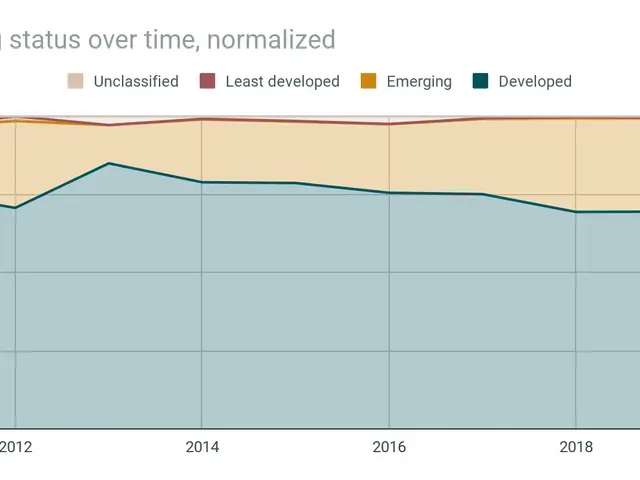Assessing Money Laundering Risks Tailored for Cryptocurrency Trading Platforms
In a bid to combat money laundering and financial crimes, regulatory bodies are increasingly focusing on cryptocurrency exchanges. This article provides a comprehensive guide on the importance of AML Risk Assessments for these digital asset platforms.
The Financial Crimes Enforcement Network (FinCEN) has proposed that all covered financial institutions, including cryptocurrency exchanges, maintain an "effective and reasonably designed" AML program. Central to this program is the requirement for a written AML Risk Assessment.
Properly segmenting customers according to their risk profile is crucial for cryptocurrency exchanges. This segmentation is essential for identifying anomalous activity as part of the AML Risk Assessment process. Each exchange should conduct an assessment tailored to its business and operations.
The New York Department of Financial Services (NYDFS) advises firms to assess their inherent risk and implement certain controls. These include augmenting Know Your Customer (KYC)-related controls, conducting transaction monitoring of on-chain activity, and sanctions screening of on-chain activity.
Cryptocurrency exchanges should also assess the specific AML risks associated with each digital asset offered. Liquidity and privacy are key factors to consider. In New York, exchanges are required to obtain a BitLicense and perform an AML Risk Assessment.
Digital asset companies should consider the volumes and values of digital asset inflows from high-risk counterparties like mixers/tumblers, high-risk exchanges, and darknet markets to assess their exposure. However, it's important to note that blockchain tracing solutions do not cover all digital assets, especially thinly traded ones, posing a higher risk for those not supported.
Our website can provide guidelines and tools for conducting AML risk assessments, offering templates for risk evaluation, and sharing best practices for establishing an effective financial crime risk management framework specific to cryptocurrency issuers. We can also assist with AML and sanctions risk management framework development, AML and sanctions board training, AML and sanctions risk assessment training, and AML and sanctions gap analyses.
It's worth mentioning that while federal law does not currently require Money Services Businesses (MSBs), including cryptocurrency exchanges, to perform an Anti-Money Laundering (AML) Risk Assessment, FinCEN strongly encourages management to document a written AML Risk Assessment for a clear basis for the MSB's policies and procedures.
Under New York Law, cryptocurrency exchanges are also required to conduct additional assessments on an annual basis or more frequently as risks change. As part of the AML Risk Assessment process, exchanges should assess the volumes and value of higher-risk assets to evaluate exposure and determine whether the exchange is operating within its risk appetite.
In conclusion, conducting thorough and regular AML Risk Assessments is essential for cryptocurrency exchanges to ensure compliance with regulations and maintain a secure and trustworthy environment for their users.
Read also:
- Peptide YY (PYY): Exploring its Role in Appetite Suppression, Intestinal Health, and Cognitive Links
- Toddler Health: Rotavirus Signs, Origins, and Potential Complications
- Digestive issues and heart discomfort: Root causes and associated health conditions
- House Infernos: Deadly Hazards Surpassing the Flames







